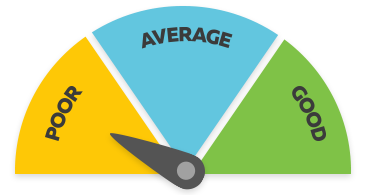Actor
Kaitapere
Alternative titles for this job
Actors entertain people by using body movement and speech to play a character in media and stage productions.
Pay
Pay rates for actors vary depending on your ability, how often you work and what type of work you do.
Source: The Big Idea, 2023
Job opportunities
Pay
Pay rates for actors vary depending on your ability, how often you work, the size of the production you are working on, and what type of work you do.
Actors often need to combine their work with other forms of employment, as acting work tends to be irregular.
- Actors usually earn the minimum wage or a little more when working as an actor.
Source: The Big Idea,' Lowdown: Creatives Income Research Paints "Grim" Picture', 25 May 2023.
(This information is a guide only. Find out more about the sources of our pay information)
What you will do
Actors may do some or all of the following:
- audition for parts in performances on stage, in film or on television
- study scripts and research the character and project they're working on
- memorise and rehearse their character's lines, cues and physical movements
- act out the role for an audience or in front of a camera
- improvise parts of their character's personality or actions during rehearsal or in front of an audience
- perform stunts for an audience or in front of a camera.
Skills and knowledge
Actors need to have:
- knowledge of how people behave and speak, so they can create believable characters
- the ability to project their voice to fill a performance space
- knowledge of a range of books, plays and poetry
- knowledge of different cultures
- knowledge of the New Zealand media industry
- skill in interpreting and analysing roles.
Stunt performers need to have:
- knowledge of different stunts, including which stunts to perform in certain situations and the best way of performing them
- the ability to use specialist stunt equipment such as flying harnesses and airbags
- skills relating to the type of stunts they are performing such as martial arts, gymnastics or driving.
Working conditions
Actors:
- often work long and irregular hours, including evenings and weekends
- work indoors in places like theatres, television and film studios, and radio stations. They also work outdoors on location
- may travel to film on location, or if they are part of a touring production.
What's the job really like?

Taylor Griffin
Actor
Taylor Griffin has always loved acting. It was this love that saw him get a degree in performing arts and kick-start his career with a role in Shortland Street. But being a professional actor is not always as easy as it may seem.
Freedom to create
“I love the freedom of being an actor. I get to do a lot of my own theatre work and make a lot of my own stuff.
“But acting will always be one of the hardest professions to get properly paid work. You’re always going to need something else on the side until you make it really big.
“Yet I find a lot more happiness doing the lesser paid gigs than I do the higher paying gigs.”
Stay positive
“Staying motivated and positive are probably the two biggest challenges when it comes to being an actor. You probably get one job out of every 100 auditions so you need to have a really thick skin and not take it personally.
“Every small hurdle will make you a better actor and will set you up for something else that comes along.”
Be committed
“The biggest piece of advice I would give to aspiring actors is follow your heart. Acting is one of those jobs you can only really do if you’re 100% ready to commit to working really hard for years and years of your life.”
Entry requirements
There are no specific entry requirements to become an actor. However, a Diploma or Bachelor of Performing Arts, or a Bachelor of Arts majoring in drama may be useful.
Requirements for stuntpeople
To become a stuntperson you need to have the skills, knowledge and ability to perform stunts.
To be a member of the Stunt Guild of New Zealand you must be at least 18 years of age and meet other specific criteria.
Secondary education
There are no specific secondary education requirements to become an actor. However, music, dance and drama, English, te reo Māori and media studies are useful.
For stunt work, physical education may be useful.
Personal requirements
Actors need to be:
- able to memorise lines
- able to take direction, accept criticism, and work well under pressure
- disciplined and motivated
- creative and imaginative
- able to work well as part of a team and with agents
- strong communicators
- organised.
Every small hurdle will make you a better actor and will set you up for something else that comes along.

Taylor Griffin
Actor
Useful experience
Useful experience for actors includes:
- amateur or professional acting
- performance work (eg, kapa haka)
- any sport or other pursuit that involves teamwork
- physical activities such as horse riding, gymnastics, scuba diving and boxing.
Physical requirements
Actors need to be reasonably fit and healthy, as the work can be physically demanding. They should also have clear speech.
Check out related coursesWhat are the chances of getting a job?
Few opportunities for actors
It is difficult to get work as an actor in New Zealand because the performing arts industry is small.
Many actors do a second job to supplement their income.
Having an agent can increase your chances of finding acting work. The Actors Agents Association of New Zealand lists reputable agents operating in New Zealand.
According to the Census, 429 actors worked in New Zealand in 2018.
Types of employers varied
Most actors are self-employed and work on a project-by-project basis.
Actors may work for:
- local theatre companies
- television networks
- film and television production companies.
Sources
- Ansell-Bridges, M, industrial officer/organiser, Equity New Zealand, careers.govt.nz interview, March 2018.
- Creative New Zealand, 'Creative New Zealand Welcomes Biggest Government Investment in the Arts for Two Decades', 29 May 2020, (www.creativenz.govt.nz).
- Creative New Zealand, 'Find Funding', accessed March 2018, (www.creativenz.govt.nz).
- Dunster, G, chair, Actors Agents Association of New Zealand, careers.govt.nz interview, March 2018.
- Ministry for Culture and Heritage, 'COVID-19: Information for our Sector', 27 May 2020, (www.mch.govt.nz).
- Stats NZ, '2018 Census Data', 2019.
- Stephenson, M, agent, Karen Kay Management, careers.govt.nz interview, March 2018.
- Wainright, S, 'Reflecting on the Year That’s Been 2021', 8 December 2021, (www.creativenz.govt.nz).
(This information is a guide only. Find out more about the sources of our job opportunities information)
Progression and specialisations
Actors may progress into related roles such as author, director or media producer.
- Author job information
- Director (film, television, radio or stage) job information
- Media producer job information
Actors may specialise in stage acting, television shows, film, advertisements or voice-overs.
With industry experience, stuntspeople may progress to become stunt co-ordinators. Stuntspeople may specialise in doing stunts such as high falls or fights.
Last updated 27 November 2023

